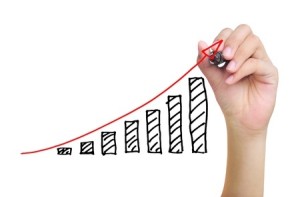Stocks
“The only thing you can predict about the stock market is that it’s utterly unpredictable. It’s going to go up and it’s going to go down. Historically, the market has gone up more than it has gone down, and that’s what you’re counting on.”
– Ilyce R. Glink, author of
100 Questions You Should Ask About Your Personal Finances
Stocks represent part ownership in a public corporation. It’s as if you buy a piece of the company–if it makes money, so do you. By the same token, if the company you invest in falters or fails altogether, you could lose some or all of your investment.
That’s why it’s critical to study every company in which you buy stock. You should know its products or services, its market, and whether or not it has a sound balance sheet, positive cash flow, and competent management. You should also consider what analysts predict in earnings for the company’s future.
Because stock prices tend to fluctuate more sharply–both up and down–than other types of asset classes, stocks are considered a riskier investment than cash or bonds. However, in the past, over the long term, stocks have consistently outperformed every other type of investment.
If you do thorough research, make careful selections, and patiently ride out market volatility for at least 5-10 years, chances are good that your stock portfolio choices will reward you with more substantial returns than other investment vehicles.
Investing Tidbit:
Since 1926, common stocks have yielded an average annual return of 11.2%–more than bonds or cash investments–and moved well ahead of inflation. The worst annual return in the history of the S&P 500 Index was in 1931, when the market dropped a record 43.3%. Just two years later, in 1933, the market recovered with another record return: 53.5%.

